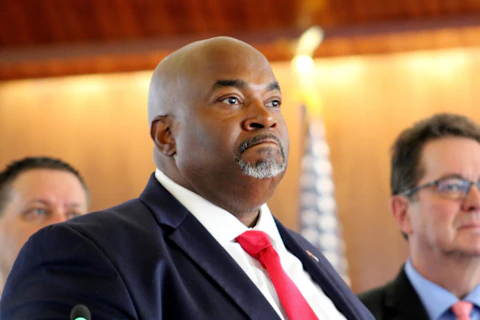Until Nov. 8, I was a licensed nurse working on the COVID-19 frontlines. I had three jobs, often spending 19 hours a day at a rehab facility, a home health company, and the department of public health. Then, in early November, the USCIS put me out of work.
Whenever I’m watching TV and catch one of those employment ads from Georgia hospitals desperately trying to recruit more nurses, I email Gov. Brian Kemp. Please, I write, tell President Trump and Congress their immigration policies are hurting Georgia hospitals.
You see, until Nov. 8, I was a licensed nurse working on the COVID-19 frontlines. I had three jobs, often spending 19 hours a day at a rehab facility, a home health company, and the department of public health. Then, in early November, as COVID cases surged across the state, the US Citizenship and Immigration Services (USCIS) put me out of work.
Over the last four years, there has been absolutely no progress in reforming the skilled legal immigration system. This is a failure of the Trump administration and of Congress. I’m one of 75,000 immigrants—mostly women—who were recently forced to stop working because USCIS hasn’t renewed our H-4 employment authorization documents, or H-4 EAD work permits. Recent lawsuits allege we are being intentionally kept out of the workforce—especially since the current administration moved to end our permits altogether back in February.
Sort Fact From Fiction: Sign up for COURIER’s Newsletter
That’s terribly unfair for us and our families, who depend on our income. It’s also unconscionable. Roughly two-thirds of H-4 EAD holders work in critical STEM fields, including the fight against COVID-19. Now, more than ever, the country cannot afford to put us on the sidelines.
Currently, the US has a massive healthcare worker shortage. In 2018, there were 27 open healthcare practitioner jobs—including registered nurses—for every one qualified unemployed worker, according to the immigration nonprofit New American Economy. In Georgia, the problem is even more acute: 37.4 open practitioner jobs for every one unemployed worker. With hundreds of open nursing positions here, my employers need me. I filed my application in August, but have been told the wait could be up to 10 months even though healthcare workers are supposed to receive priority status.
This useless feeling is all too familiar. I came to this country in 2006 with my husband, when he received an H-1B visa for high skilled workers. At that time, there was no legal way for the spouses of H-1B holders to work here. I couldn’t use my training as a microbiologist or support our family financially. I’d sit at home, day after day.
When the Obama administration introduced the H-4 EAD work permit in 2015, I didn’t waste a minute. I became a certified nursing assistant, started working and enrolled in nursing school part time. I became a licensed nurse last fall. Like 90,946 other spouses, I could finally be a role model to my children, provide for my family, and contribute to my local economy. It’s difficult to describe the frustration I currently feel. I have the skills to save lives, but I’m not allowed to.
RELATED: Trump Has Deliberately Targeted Immigrants During the Pandemic. These 13 Policies Prove It.
To be fair, some of the challenges immigrants like me are facing pre-date the outgoing administration. My husband and I have been waiting nearly 10 years to receive our green cards with no end in sight, all because of an arbitrary rule that allows just 7% of immigrants from a given country to be approved for an employment-based green card in a given year. Currently, Indian professionals like us account for 75% of those waiting in line. Anyone applying now has more than a million people in front of them and an estimated wait time of 89 years.
There is bi-partisan support in the House of Representatives to change this rule. Unfortunately, the Senate hasn’t been able to come to an agreement on the Fairness for High-Skilled Immigrants Act.
In the long term, we need reform that will allow my family to put down permanent roots. But in the short term—today—we need to prioritize public health and safety. The hospital isn’t the only one that wants me back in scrubs. My patients and their families, who know and trust my skills, need me. My fellow nurses, who are exhausted and craving time with their families over the holidays, need me. And my own family, my husband and our American-born children, need my income.
President-elect Joe Biden has promised Americans that he is taking the pandemic seriously. That means letting women like me go back to work. It also means removing the per-country cap, as he’s also promised to do. That would open a pipeline to more essential workers who can fill existing gaps in healthcare and other industries.
My job puts my health and my family’s health at risk, but like so many other essential workers, I do it because I care about our city and its residents. We’ve worked so hard to build our lives in this country; we work every day on behalf of our community. We have much more to give, if only we can.



